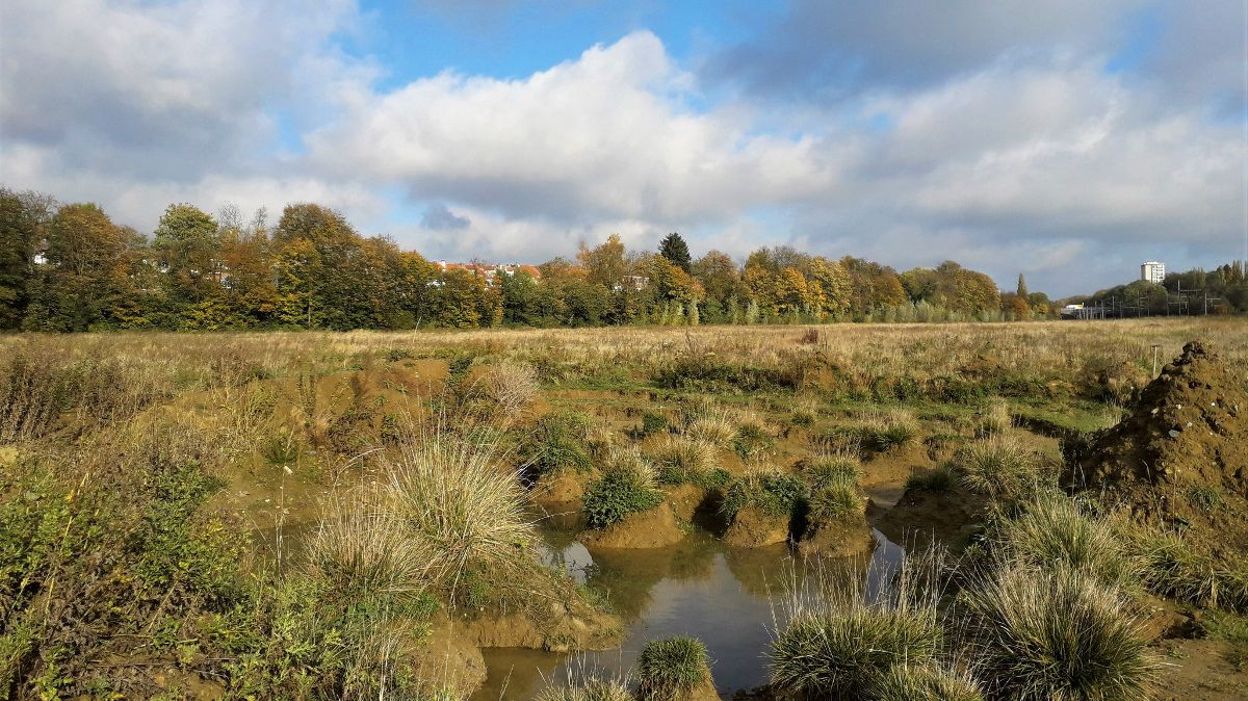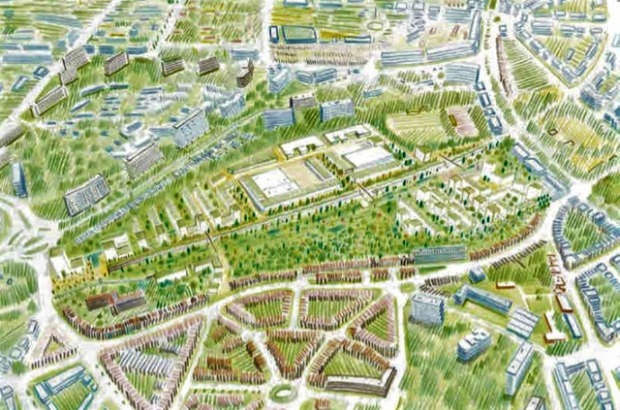- Daily & Weekly newsletters
- Buy & download The Bulletin
- Comment on our articles
New Josaphat plan is ‘complete mockery’ of citizen input, say activists
The Brussels-Capital Region has approved a new plan for the Josaphat site on the border between Schaerbeek and Evere that retains one hectare of the existing natural area and far less housing than previously proposed.
Activists have been fighting for two years to get the region to scrap its plan for a housing and industrial project on the site. The 25-hectare area was formally a marshalling yard, but has not been used for more than 25 years. In the time since, nature has taken over, and the site has become an extremely diverse biotope for plants, animals and insects.
The region’s new plan calls for 1.3 hectares of this biotope to be retained, reduces the number of housing units from 1,600 to 1,200 and increases the amount of developed green space in the new neighbourhood. Rather than being spread across the area, the housing is now centralised in two spots. About one-quarter of the housing units will be designated as social housing.
‘Nothing will remain’
The new Josaphat neighbourhood will also be home to a primary and secondary school with sport facilities, built by the Schaerbeek municipality. Part of the new neighbourhood will also be car-free.
“I hope that we have provided solid answers and firm guarantees to meet the valid questions that were raised during the public inquiry,” said minister-presidents Rudi Vervoort, “and that we can now proceed peacefully with the development of this strategic site.”
That is not the case, however. While some 40% of the site will be devoted to green space, only 5% consists of the urban wilderness that exists there now.

The Josaphat site has spent more than 25 years growing into a diverse biotope ©Bernard Pasau
“To shrink an open space of 25 hectares with a very special biodiversity to a narrow strip of 1.3 hectares is really a complete mockery of all the arguments that scientists and citizens have put forward over the past year,” author and activist David Van Reybrouck told Bruzz. “Nothing, but nothing, of the richness of the species will remain.”
The way the region has handled the entire controversy around the development of the Josaphat site is what surprises Mathieu Simonson of Sauvons la friche Josaphat, which defends the interests of the biotope. “We asked for a broad public debate on the future of the site, and what do we get?” he said to Bruzz. “Another proposal in which everything is set in stone. Rudi Vervoort just didn’t listen to the criticism that we had levied specifically against this way of governing.”
A new public examination of the site will happen in September, when members of the public can again provide feedback.



















